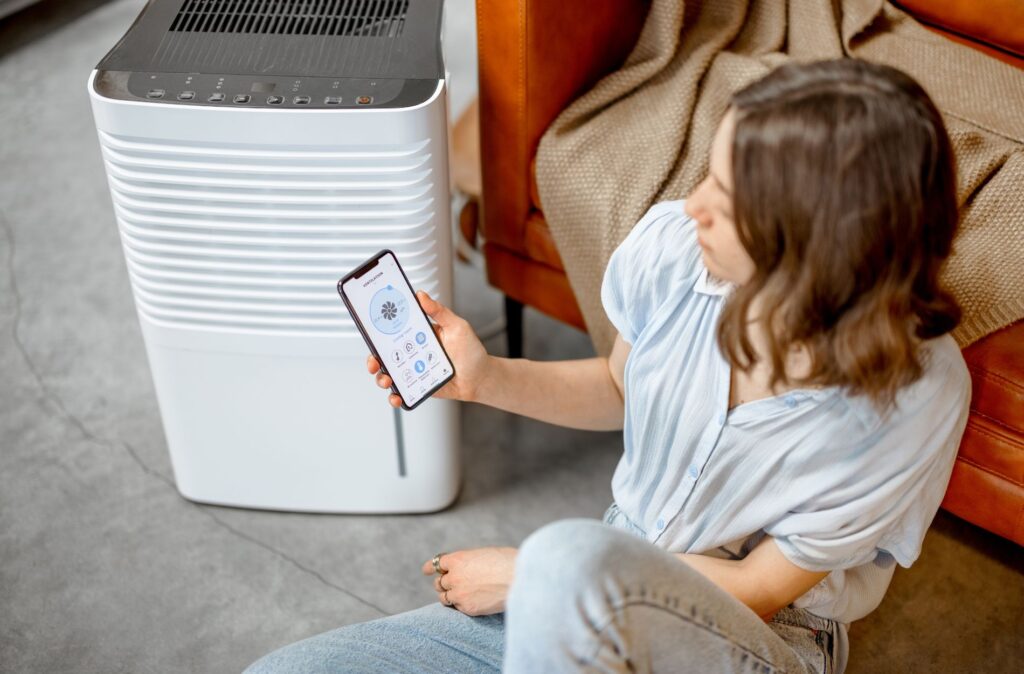Maintaining a healthy and comfortable living environment within your home is of the utmost importance, with indoor air quality playing a crucial role in achieving this goal. Unfortunately, indoor air can be filled with pollutants, allergens, and other contaminants that can have a negative impact on the health and well-being of your family. One effective solution to improve your home’s indoor air quality is investing in an air purification system.
Air purification systems work alongside your HVAC system to further filter and clean the air, removing impurities and providing a cleaner, healthier living environment. These systems are designed to target a wide range of contaminants, including dust, pollen, mold spores, pet dander, and even volatile organic compounds (VOCs) emitted by certain household products.
Join us as we explore the many benefits of air purification systems, highlighting how they can enhance the overall indoor air quality within your home. We will discuss the various types of air purification systems available, including mechanical filters, activated carbon filters, and ultraviolet (UV) germicidal irradiation systems, providing insights on their functions and effectiveness. Furthermore, we will provide guidance on selecting the right air purification system to suit your specific needs and preferences.
1. Types of Air Purification Systems: Understanding Your Options
There are several types of air purification systems available, each designed to target and eliminate specific contaminants from the air. Understanding the various options is essential for selecting the one that best suits your needs. The three most common types of air purification systems include:
- Mechanical Filters: These systems utilize a high-efficiency particulate air (HEPA) filter to trap and remove airborne particles, such as dust, pollen, and pet dander. HEPA filters can capture particles as small as 0.3 microns, making them highly effective for improving indoor air quality.
- Activated Carbon Filters: These filters are specifically designed to remove odors, gases, and volatile organic compounds (VOCs) from the air. Activated carbon filters use a process called adsorption, where contaminants stick to the porous surface of the carbon material, effectively eliminating them from the air.
- Ultraviolet (UV) Germicidal Irradiation Systems: These systems use ultraviolet light to inactivate microorganisms like bacteria, viruses, and mold spores. UV germicidal irradiation systems do not remove particulate matter but are highly effective in combating airborne pathogens and maintaining a healthier indoor environment.
2. Benefits of Air Purification for Allergy and Asthma Sufferers
Air purification systems can provide significant relief to individuals suffering from allergies or asthma, as they remove common allergens and irritants from the indoor air. By investing in an air purification system, you can reduce allergy symptoms and asthma attacks, leading to improved health and well-being for those affected.
Mechanical air purifiers with HEPA filters are particularly useful for capturing airborne allergens such as pollen, pet dander, and dust mites, which can aggravate respiratory conditions. Additionally, activated carbon filters can help remove irritants like cigarette smoke and cleaning chemicals that can trigger asthma symptoms.
3. Eliminating Odors and VOCs with Air Purification Systems
Household odors and volatile organic compounds (VOCs) emitted from household products and building materials can negatively impact indoor air quality. VOCs include substances such as formaldehyde, which can be released from new furniture, carpets, and paint. To tackle these issues, air purification systems with activated carbon filters are highly effective.
Activated carbon filters can adsorb and neutralize unpleasant odors from cooking, pets, or smoke while also effectively removing VOCs from the air. By reducing odors and volatile organic compounds, an air purification system can greatly enhance the overall comfort and safety of your living environment.
4. Selecting the Right Air Purification System for Your Home: Our Professional Guidance
Choosing the best air purification system for your home depends on many factors, such as the size of your living space, your specific indoor air quality concerns, and your personal preferences. Our professionals can provide expert guidance to help you make the ideal choice for your needs. A few things to consider when selecting an air purification system include:
- Room Size: Ensure that the air purifier you choose has the capacity to effectively clean and circulate the air in your living space.
- Filter Type: Based on your unique needs and concerns, consider an air purifier with a HEPA filter for allergens and particulate matter, an activated carbon filter for odors and VOCs, or a UV germicidal irradiation system for microbial contaminants.
- Maintenance Requirements: Keep in mind that filters will need to be replaced periodically to maintain optimal performance. Clarify the replacement schedule for your chosen system and include these costs in your budget.
Conclusion
Air purification systems offer numerous benefits for enhancing the indoor air quality within your home, such as reducing allergens, eliminating odors and VOCs, and promoting a healthier living environment. At B.L.R. Heating & Air, our HVAC professionals can help you navigate the various options and select the best air purification in Woods Cross that is tailored to your specific needs and preferences. Contact us today to learn more about the benefits of our HVAC services and to schedule an appointment with our experts, who are eager to help you create a cleaner, healthier home for you and your family.





